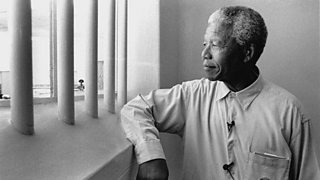
Conscripting Beethoven
Music historian Leah Broad discovers how pianists Elly Ney and Myra Hess used Beethoven to shape wartime culture in Germany and Britain.
Myra Hess and Elly Ney were both celebrated pianists and contemporaries, and at first sight, the parallels between their careers are remarkable. Both toured the United States in the 1920s where they became famous for their interpretations of the Austro-German canon. Both found fame as early recording artists. Both pianists had Beethoven at the heart of their repertoire.
But come wartime, their Beethoven performances came to mean two completely different things in two completely different contexts. Ney’s warmongering, violent Beethoven was proof of Germany’s difference from the rest of the world; Hess’s Beethoven spoke across national borders, providing a vision of a more compassionate, shared world.
Music historian Leah Broad examines why Beethoven was so important to both Ney and Hess, and how they used his music to shape wartime culture in Britain and Germany.
In Munich, Leah meets the granddaughter and great-granddaughter of Elly Ney, speaking for the first time to the English-language media. We also hear from the former driver and confidant of the German pianist, who continues to defend her wartime alignment with the Third Reich.
Closer to home, Leah speaks to two living relatives of Myra Hess, who speak of her lifetime love of Beethoven. Playing his music “was like visiting an old friend,” says composer and great-nephew Nigel Hess.
By bringing Hess and Ney’s lives together, the feature offers a new perspective on the familiar story of Myra Hess’ National Gallery concerts and shows how classical music was used to prop up middle-class support for the Nazis in the early years of their regime.
Producer: Mike Lanchin
Researcher: Katie Harris
Exec Producer: Kristine Pommert
A CTVC production for BBC Radio 3
Recordings of Ney in her car courtesy of DokFabrik
On radio
More episodes
Broadcast
- Sunday 19:15BBC Radio 3





